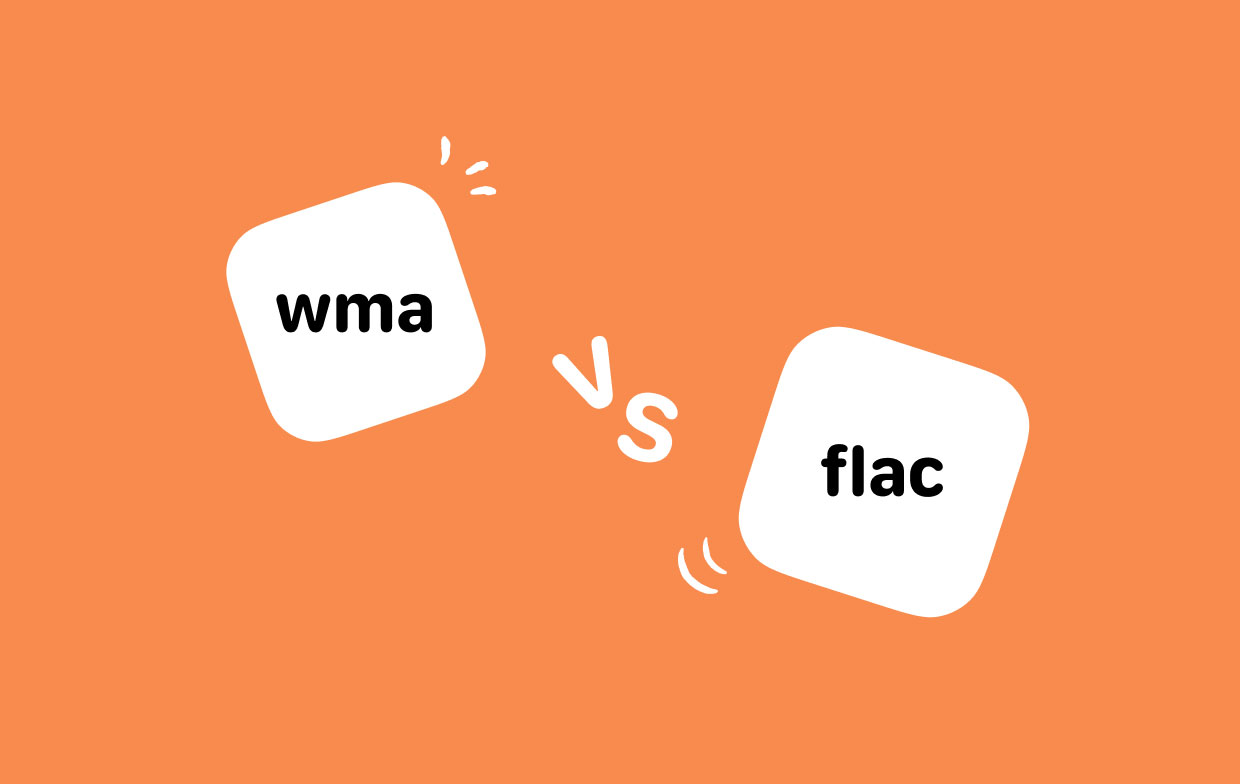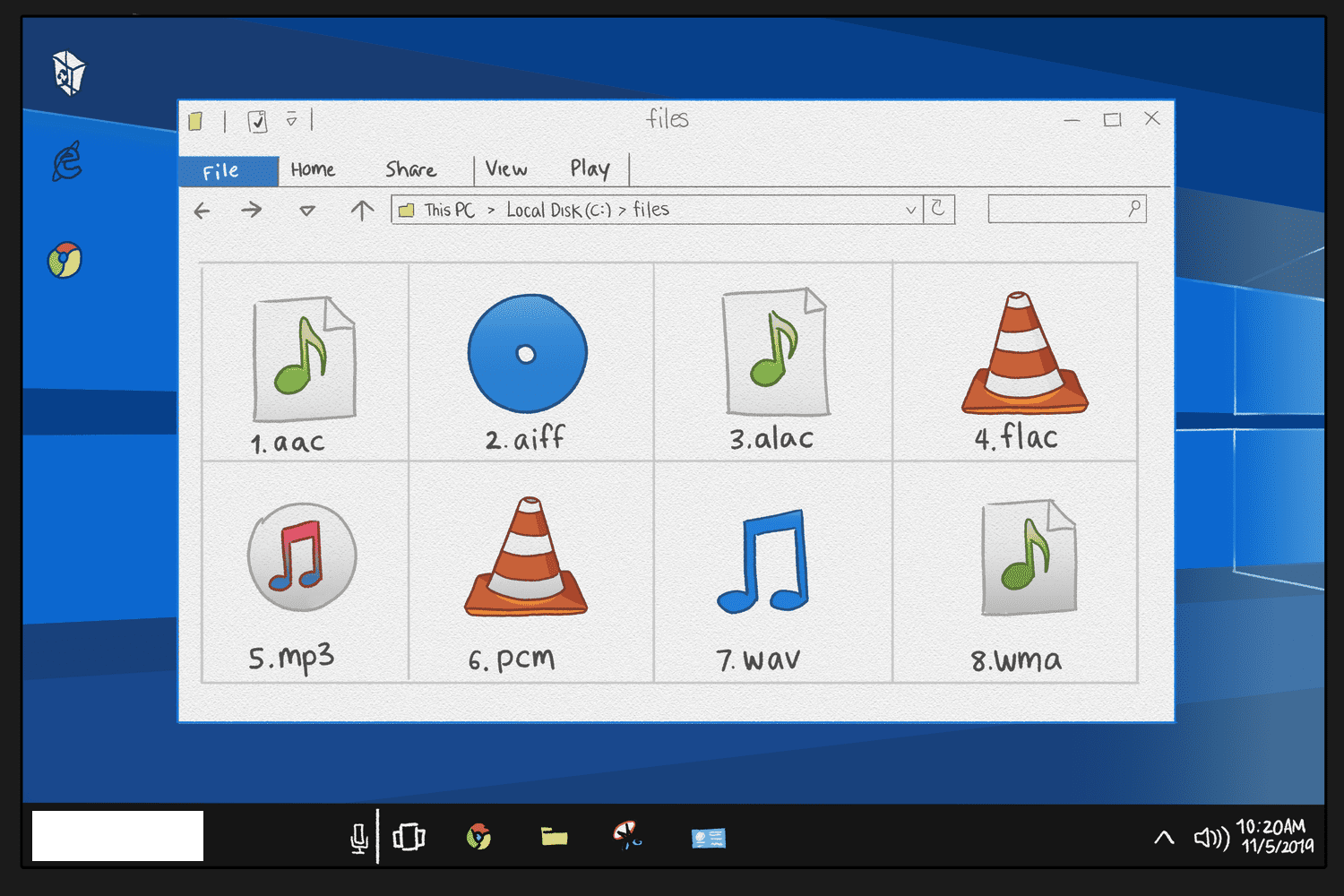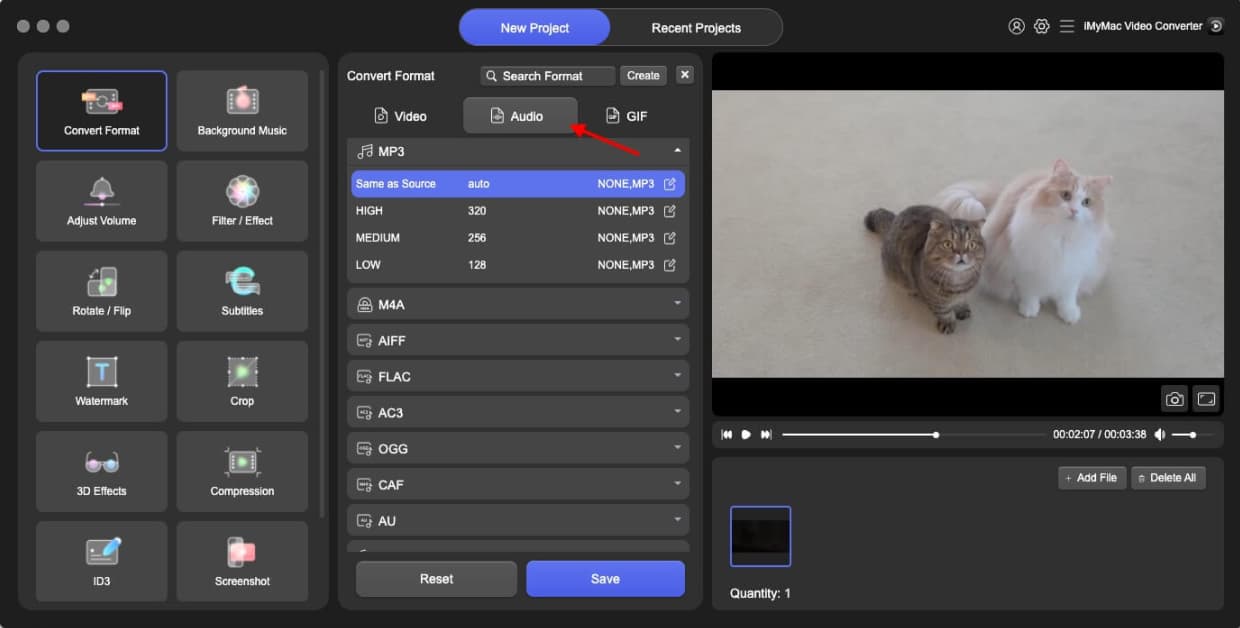Different techniques may be used to compress audio without loss. There shouldn't be any difference in sound quality between these formats since they are all lossless by definition. The key distinction is in how they are compressed, which, according to some, has various effects on audio quality. Depending on the situation, WMA vs FLAC files has certain benefits and downsides.
The computer will be stuffed with online music files in various formats if you've been listening to digital audio for a while. The majority of the time, as long as the media player could read them, you don't need to give them a second thought. What is the ideal audio format and perfect converter for your music? You may begin to question as you delve more into this audiophile pastime.
Contents: Part 1. Is WMA or FLAC Better Quality?Part 2. WMA vs FLAC: Which Audio Format to Choose?Part 3. Special Pick: Convert WMA to FLAC Format Using iMyMac Video ConverterPart 4. Conclusion
Part 1. Is WMA or FLAC Better Quality?
What exactly is the WMA of WMA vs FLAC? One of the most widespread lossless formats available today is Windows Media Audio, which is only one of several. Its initial purpose was to rival with MP3 format, which did not come equipped with the comprehensive digital rights management features that the WMA format has. It is equivalent to certain other proprietary lossless file types in terms of its capacity to accommodate high-resolution recordings as well as multiple channels of audio.
WMA makes use of a one-of-a-kind compression technique that is said to be capable of producing audio of superior quality when compared to other lossless formats. The supremacy of the WMA file type is called into doubt due to the fact that the term "lossless" refers, by definition, to the replication of an actual source in an exact manner.
Speak of WMA vs FLAC, what is FLAC? Josh Coalson was the one who came up with the idea for the free lossless audio codec back in the year 2000. Since then, it has become a standard format for the playing of lossless music. The FLAC format, much like the Apple Lossless format, is open source, meaning that it may be used and developed upon whatever the user sees fit.
There is no cost associated with using any of the software required to create or modify FLAC files. The lack of compatibility of the format with a large number of proprietary audio devices and software is a significant drawback of the format. Despite this, however, the popularity of the FLAC format has also significantly increased, particularly in the field of audio transmission.

The usage of digital rights management technology, or absence thereof, is the primary distinction between the WMA vs FLAC formats. Microsoft owns the WMA proprietary format, and using it calls for a license. Despite this drawback, it is one of the most widely used codecs and can be used with a range of hardware and software. The FLAC file type has the benefit of being freely usable, while the WMA format lacks the WMA's broad use. The use case for the file will always determine the optimal format.
Technically speaking, any lossless audio codec should provide the same audio quality. However, it is sometimes said that the various compression techniques lead to minute variations. Depending on the extent of the audio it includes, the WMA codec applies one of two forms of compression to a single file. The outcome is believed to deliver smoother quality compared to other codecs, with less compression on complicated passages and much more compression towards less complex parts.
In WMA vs FLAC, all audio files are compressed in the same manner using the significantly simpler FLAC compression technique. If there is a variation in the WMA codec quality as a consequence, it is likely not audible to the human ear.

Part 2. WMA vs FLAC: Which Audio Format to Choose?
The WMA format resembles the MP3 format that compresses the audio data correspondingly, which results in a reduction in file size at the expense of poor audio quality. Because this format may not be as extensively accepted as MP3, there isn't any preferential position to choosing this file type.
FLAC files being compressed in a way that doesn't reduce the sound quality, making it possibly the greatest format available for saving your music. This compression enables you to cut the size of the file by approximately to 60% while keeping the complete of the source audio content. When comparing WMA vs FLAC files, FLAC files have information labels that store artist and album data.
Part 3. Special Pick: Convert WMA to FLAC Format Using iMyMac Video Converter
FLAC is only incompatible with a select few audio systems. FLAC is well-known among audiophiles because it produces a sound of CD quality while taking up less storage space than other formats. If you have a .wma file and wish to convert it to FLAC or another format for a variety of reasons, the best option is to use iMyMac Video Converter because it supports a variety of audio formats, including WMA, FLAC, MKV, AVI, and so on.
If you would like to do the conversion of WMA vs FLAC or other formats, click here. It has outstanding capabilities, including the ability to convert audio in batches without degrading the sound quality. Besides, it can transcode videos and allow you to make edits to them before storing them on the device.
Additionally, it is compatible with both Windows and Mac operating systems. Because of its straightforward design and intuitive operation, you won't have any trouble figuring out how to use it, even if you have no prior experience with it.

Part 4. Conclusion
We hope our comparison of WMA vs FLAC was able to help you choose which audio format is preferable for you. If you already have WMA files, you may convert them to FLAC as well. You can surely get rid of unnecessary audio files by switching from WMA lossless into FLAC file format, and FLAC file format takes up less space when saving your file.



